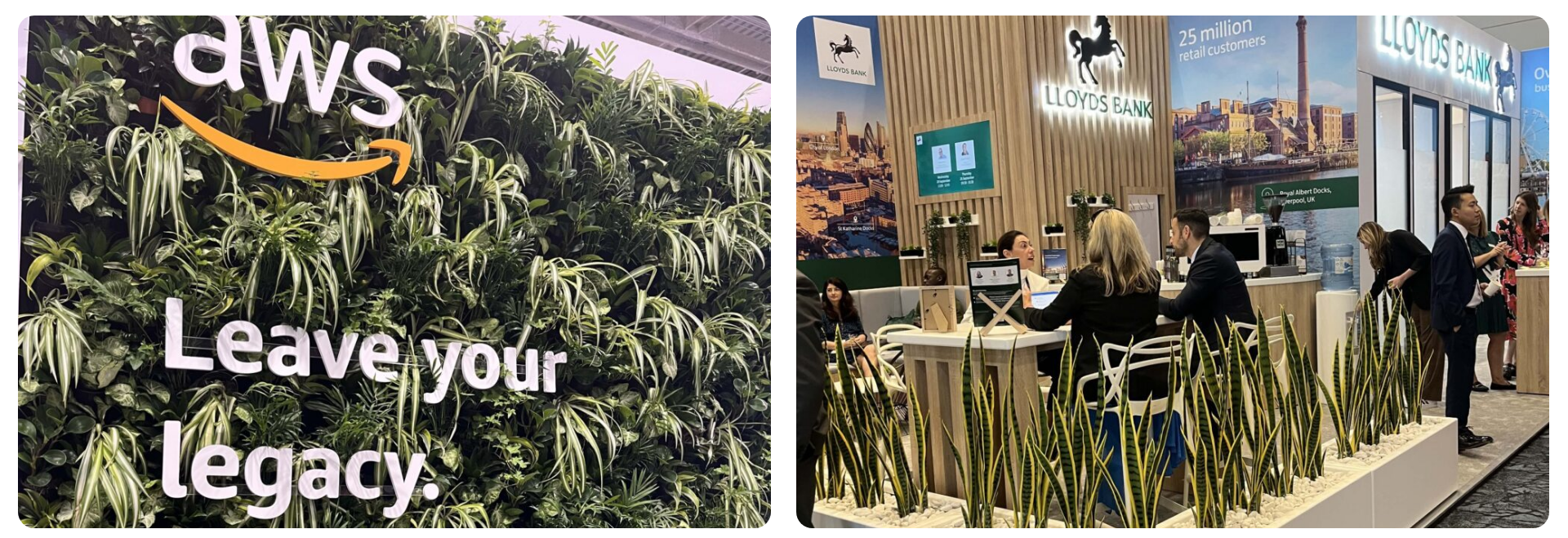Banking on connection at Sibos
Last month I made my way to the Metro Convention Centre in Toronto to immerse myself in the bustling atmosphere of SIBOS – the annual global conference for the finance community. The event brings together nearly 10,000 executives, decision-makers, and industry thought-leaders from around the world.
Author:
The theme this year was ‘collaborative finance in a fragmented world’.
Traditionally, financial institutions have operated as separate entities, but in today’s interconnected world collaboration has become essential. Collaborative finance represents the idea that financial institutions, fintech firms, regulators, and other stakeholders need to work together to address complex challenges, drive innovation, and create a more cohesive financial ecosystem.
Meetings are King of the conference
Two things stood out on the event floor– coffee and conference rooms. Private rooms were at capacity with some booked months in advance. Exhibitors’ floors were occupied by open air meetings in booths, couches, chairs, ottomans, or barstools… no seat was safe in a sea of constant collaboration.
Networking utopia
Meeting management included a full concierge experience. It was an opportunity for attendees to engage in days of tailored appointments and seamless networking. Some exhibitors offered digital boards where attendees could navigate through potential connections, paired with capabilities and specialty services. In some cases, exhibits had up to 10 reserved meeting spaces, as if their office HQ dropped from the sky and landed on the conference floor. Smaller banks and fintech brands relied heavily on a customer-centric approach with managers at the ready for new networking opportunities.
Connecting over coffee
The range of coffee experiences mirrored the diversity of the financial landscape. Major players opted for full-service baristas and café food, transforming their booths into coffee havens, where attendees could enjoy expertly brewed artisanal blends. Smaller firms took a more pragmatic approach, fueling the busy schedules of attendees by providing a quick caffeine fix between sessions.
The juxtaposition of experiences mirrored the broader theme of SIBOS itself: high-end innovation versus the practical necessities of the financial world.
The consensus
The emphasis was clear: while the aesthetics were a drawcard, the primary goal was engaging in meaningful discussions to shape the future of finance. Coffee was a tool for connection.

Human touch over information overload
Design and storytelling were paramount for engaging conference-goers. It was clear that people were bypassing walls of text and an overwhelming amount of data. The challenge lay in finding the delicate balance between conveying essential information and creating a visually appealing experience.
Brand Storytelling
Leveraging the power of storytelling to connect with the audience on a deeper level was the most effective exhibit approach. The best booths showcased narratives that went beyond mere financial transactions, inviting attendees to become part of their brand’s compelling journey and engage with various touchpoints.
Sustainability
Sustainability was a recurring theme. Many booths incorporated eco-friendly elements like greenery, wood tones, nature imagery, and films showcasing global initiatives. The design choices reflected a commitment to responsible banking practices and environmental consciousness, echoing the broader industry’s growing focus on sustainability. Well done.

Answering the theme
“Collaborative finance in a fragmented world” was deeply embedded throughout the conference with the strong focus on meetings, connection, and networking opportunities. All booths and films featured purposeful representation to further communicate this. Panel discussions featuring various banks and fintechs also gave insight into how collaboratively banks, fintech and regulators are working together to address geopolitical climates, border regulations, and other extraneous factors that fragment our world.
Brands who did it best
Mastercard – The large floating LED and Mastercard logo made the small area appear much larger than it really was. The space was warm and inviting with a welcome desk, meeting rooms, coffee, food, friendly staff, and various films portraying their commitments to economic communities and the planet. A touchscreen monitor delved into the company’s products, solutions, and success stories. Their central message was empowering people to reach their full potential – economic inclusion for all.

BNP Paribas – The booth featured recycled and repurposed materials, such as sustainably sourced timber, plywood, and chipboard, complying with forestry standards. Over the last two years the bank has committed to reusing or recycling all materials from their booth. They doubled down and shared films providing a visual journey of their sustainability efforts. Transitioning to a sustainable economy is paramount to their global initiatives and this theme came through from start to finish.
